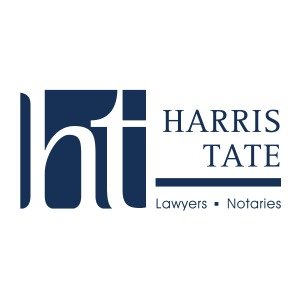Best Debt & Collection Lawyers in Tauranga
Share your needs with us, get contacted by law firms.
Free. Takes 2 min.
List of the best lawyers in Tauranga, New Zealand
About Debt & Collection Law in Tauranga, New Zealand
In Tauranga, New Zealand, legislation is in place to ensure that the process of debt collection and recovery is undertaken fairly and ethically. Such laws are primarily governed by the Credit (Repossession) Act 1997 and the Fair Trading Act 1986. These acts enforce the legal and ethical processes creditors need to follow while collecting debt, protecting the rights of debtors against harassment or unreasonable collection tactics.
Why You May Need a Lawyer
You may need a lawyer when dealing with debt and collection issues to ensure your rights are protected. For instance, if you are being harassed by creditors, require advice on bankruptcy proceedings, or need representation in court for a debt dispute, a lawyer can guide you. Additionally, lawyers specializing in debt collection can also help business owners recover debts owed to them in a lawful and ethical manner, or even help set up procedures to deal with bad debt.
Local Laws Overview
Significant aspects of Tauranga's debt and collection laws include that creditors must provide specific notification to debtors before beginning the collection process. They must also comply with ethical practices such as refraining from harassment, coercion, or deceit. Under the Credit (Repossession) Act, repossession is allowed only for certain types of debt, and there are strict processes to be followed, including a requirement to provide a post-possession order. Unlawful repossession can lead to the creditor paying damages to the debtor.
Frequently Asked Questions
What counts as harassment from a creditor?
Excessive or threatening communication, public shaming (including telling friends, family or employers about the debt), and any form of intimidation or misleading information can be considered as harassment.
Can I dispute a debt?
Yes, if you believe a debt is incorrect or unfair, you can dispute it. It may be beneficial to consult with a lawyer to understand your specific rights and procedures in such cases.
Can any item be repossessed to repay a debt?
No, only the items specified in the credit contract can be repossessed, and only if the proper legal process has been followed by the creditor.
How can a lawyer help in debt collection?
A lawyer can guide you through the lawful process of debt collection, help dispute a wrongful claim, represent you in court if needed, and provide advice on managing or restructuring debt.
What are the repercussions if a creditor breaches the debt collection law?
Violations of debt collection laws can lead to penalties. For instance, unlawful repossession can subject the creditor to pay damages to the debtor. Serious violations can also lead to criminal charges.
Additional Resources
The Commerce Commission in New Zealand provides resources and guidance about the Credit (Repossession) Act and the Fair Trading Act. The Citizens Advice Bureau Tauranga also offers free and confidential advice on debt & collection matters.
Next Steps
If you require legal assistance with debt and collection matters, start by consulting with a lawyer who specializes in this field. Gather all relevant documents related to your debt or the debt owed to you, such as contracts, correspondence, and evidence of payments or defaults. Be prepared to discuss your situation in detail with your chosen legal professional to understand your legal rights and options.
Lawzana helps you find the best lawyers and law firms in Tauranga through a curated and pre-screened list of qualified legal professionals. Our platform offers rankings and detailed profiles of attorneys and law firms, allowing you to compare based on practice areas, including Debt & Collection, experience, and client feedback.
Each profile includes a description of the firm's areas of practice, client reviews, team members and partners, year of establishment, spoken languages, office locations, contact information, social media presence, and any published articles or resources. Most firms on our platform speak English and are experienced in both local and international legal matters.
Get a quote from top-rated law firms in Tauranga, New Zealand — quickly, securely, and without unnecessary hassle.
Disclaimer:
The information provided on this page is for general informational purposes only and does not constitute legal advice. While we strive to ensure the accuracy and relevance of the content, legal information may change over time, and interpretations of the law can vary. You should always consult with a qualified legal professional for advice specific to your situation.
We disclaim all liability for actions taken or not taken based on the content of this page. If you believe any information is incorrect or outdated, please contact us, and we will review and update it where appropriate.









